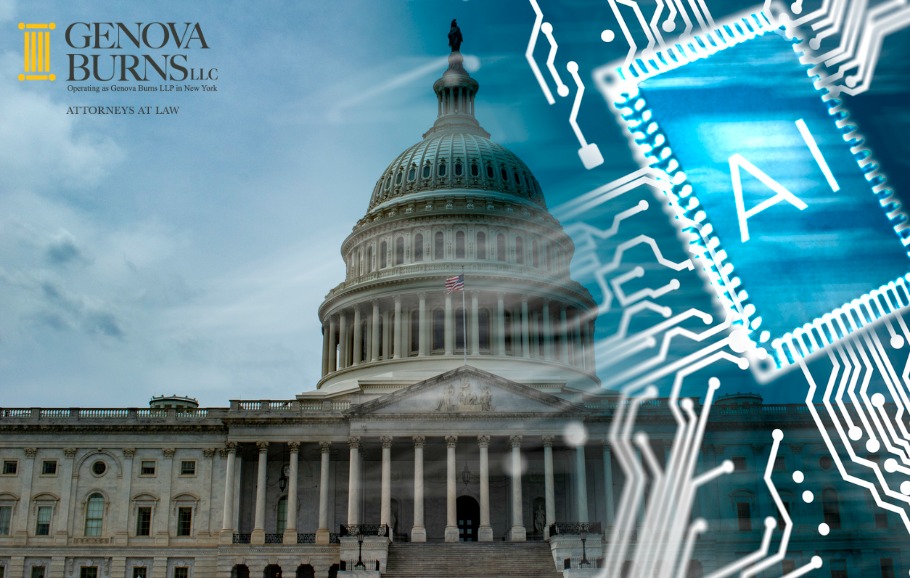Key Take-Aways On The Executive Order Removing Barriers to AI Development
February 10, 2025 | By: Jamil AbuRoomi, J.D. Candidate 2026
On January 23, 2025, the President issued an Executive Order on “Removing Barriers to American Leadership in Artificial Intelligence.” The Executive Order seeks to position the Country as a global leader in AI innovation. The Executive Order also instructs that AI systems must be “free from ideological bias or engineered social agendas.”
Within 180 days (late summer), designated advisors and federal agencies must collectively develop an action plan to achieve the policy of “sustain[ing] and enhance[ing] America’s global AI dominance in order to promote human flourishing, economic competitiveness, and national security.” These advisors and agencies must immediately review all policies, regulations, and directives implemented under the Biden administration to identify any inconsistencies with the Executive Order. The agencies then must suspend, revise, or rescind any inconsistent policies. Additionally, within 60 days (late March), the Director of the Office of Management and Budget (OMB) must update its memoranda which discuss federal agencies’ use and procurement of AI.
As federal agencies navigate this policy transition, businesses and employers should anticipate changes on both a federal and state level. For instance, the Equal Employment Opportunity Commission (the federal agency that enforces federal anti-discrimination laws) pulled from its website its 2023 guidance on discrimination and employer best practices on the use of AI in making employment decisions (such as when using AI to recruit and screen applications). However, on the state level, the New Jersey Attorney General’s Office, Division on Civil Rights recently released guidance on algorithmic discrimination in AI, and clarified through that guidance that the New Jersey Law Against Discrimination applies to employers using AI in the workplace. The Attorney General’ Guidance expressly warns that:
- When employers, housing providers, places of public accommodation, or other covered entities use automated decision-making tools, they may violate the LAD if those tools result in disparate treatment based on a protected characteristic or if those tools have a disparate impact based on a protected characteristic. The LAD also prohibits algorithmic discrimination when it precludes or impedes the provision of reasonable accommodations, or of modifications to policies, procedures, or physical structures to ensure accessibility for people based on their disability, religion, pregnancy, or breastfeeding status.
We can anticipate tensions between federal and state mandates on AI. On one hand, at the state level, New Jersey Governor Murphy signed an Executive Order in 2023 calling on state agencies to develop guidelines for the ethical use of AI. In 2024, New Jersey enacted the Next New Jersey Program providing tax credits to those who bring the AI industry into the State. We also have the State Attorney General’s Guidance on prohibiting discrimination when using AI in employment. On the other hand, we have the Administration’s directives on unlawful discrimination through DEI programs in employment (see our E.O. Hub for articles detailing these Executive Orders) and the EEOC’s action on removing from its website its guidance on discrimination and AI.
These fast-paced changes create confusion in the delicate space of an employer’s obligations in connection with discrimination, and exposure and liability when using AI. Questions are raised about internal policies regulating AI and its impact on issues of discrimination in employment, with little answers at this stage in the game.
Genova Burns LLC is here to help employers navigate these shifts. For more information, contact Sydney M. Schubert, Esq., Associate in the Labor Law & Employment Law Group, for guidance on compliance and strategic planning.
Tags: Genova Burns LLC • President's Playbook • President Trump • Executive Order • Artificial Intelligence • Equal Employment Opportunity • Anti-Discrimination Policy • Civil Rights

